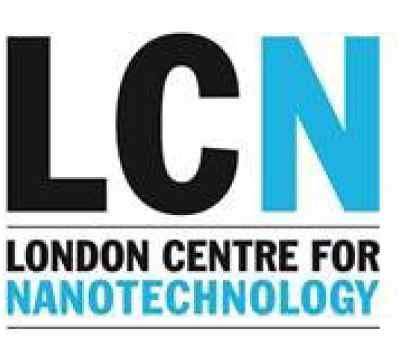As feature sizes decrease, their properties are increasingly dominated by the interface behaviour. Therefore, we have strong expertise in the characterisation and modelling of surfaces and interfaces, in particular their morphology, structure and electronic properties.
Experimental techniques that are available at Imperial include transmission electron microscopy, with which we achieve atomic resolution and chemical mapping on the nanoscale, a new secondary ion mass spectrometer, which is uniquely coupled with a low energy ion scattering chamber, and scanning probe techniques. We also specialise in synchrotron-based experiments at national laboratories (ESRF, Stanford, Argonne) and modelling using a range of theoretical tools.
| Name | Title and Research interests |
|---|---|
|
Reader in Physical Chemistry, Department of Chemistry - focus on electrochemical processes on the nanoscale Research interests span a range of different areas from single-molecule conductance studies in molecular lectronics to ion and biopolymer transport in small solid-state nanopores. |
|
|
Professor of Physical Electronics and Thin Film Materials, Vice-Dean (Research) Faculty of Engineering Current research is targeted towards Energy Materials. |
|
|
Reader in Soft Matter, Deparment of Chemical Engineering, focus on polymers and microfluids Research interests are in soft condensed matter, in particular in complex polymer mixtures, multicomponent systems, often containing particles and opolymers. currently studying the thermodynamics and dynamics or polymer blends with a combination of real- and reciprocal-space techniques, including microscopy and AFM, and light, X-ray and neutron scattering. |
|
|
Professor, Chair in Materials Theory and Simulation, Department of Materials Research interest is in exploring the links between electronic structure of materials, the behaviour of their atoms, thermodynamic functions and the evolution of Microstructure. |
|
|
Reader in Materials Chemistry, Department of Chemistry Research interests lie in the area of solar energy conversion and molecular electronics. |
|
|
Professor, Chair of Computational Materials Science, Department of Chemistry Research interests lie in the area of quantum mechanical modelling of material properties with the aim of discovering new functional materials. |
|
|
Reader in Functional Molecular Materials, Department of Materials Current research directions are focused on magnetic properties of molecular thin films, spintronic applications, novel fabrication methods for oxides, detailed structural characterisation of films and interfaces, and nanowire devices. |
|
|
Professor, BCH Steele Chair in Energy Materials, Department of Materials Research interest in studying the exchange and diffusion of oxygen in oxide ceramic materials for applications in devices such as fuel cells, oxygen separators and sensors, and has been instrumental in the development of isotopic exchange-sims techniques to study these phenomena. |
|
|
Professor, Chair in Electromagnetic Nanomaterials, Department of Materials Main scientific activities are in the area of electromagnetic material characterisation and sensor applications, but also on microwave and terahertz devices for communication and sensing. One current focus is on graphene and related 2D materials. |
|
|
Professor in Micro and Nanotechnology, Department of Chemistry Research covers nanobiotechnology with an emphasis on the development of micro and nanofluidic devices for analytical and bio-analytical applications and ultra-high sensitivity optical detection techniques. |
|
|
Assistant Director of the CDT in Theory and Simulation of Materials, and Director of the Thomas Young Centre for Theory and Simulation, Department of Materials Research is dedicated to the development and application of first-principles modelling tools for the theory and simulation of materials. |
|
|
Professor of Materials Science & Nanotechnology, Department of Materials Current research is in the area of applied electrochemistry and corrosion, with a focus on deposition of nanostructures and the study of self- forming nanocrystalline oxides; as well as fundamental work on degradation and stability of metal systems. |
|
|
Professor of Materials Chemistry, Department of Materials Research interests are in materials for new energy technologies and primarily concerned with the chemical and physical properties of solid oxide fuel cell electrolytes and electrodes, encompassing the electrical and structural characteristics of materials. |
|
|
Professor of Biomedical Materials and Regenerative Medicine and the Research Director for Biomedical Material Sciences in the Institute of Biomedical Engineering Research is focused on both high quality fundamental science and translation for human health. Research in regenerative medicine within her group includes the directed differentiation of stem cells, the design of novel bioactive scaffolds and new approaches towards tissue regeneration. |
|
|
Professor, Chairman of CDT in Theory and Simulations of Materials, Department of Physics Research interests are at the interface between condensed matter physics and materials science. Current work involves theory spanning classical and quantum mechanics, elastic field theory of defects and their interactions in solids, transport of atoms, electrons and heat in solids, hermodynamics and statistical mechanics, electronic structure and interatomic forces. |
|
Address
Nano @ Imperial
Royal School of Mines
Imperial College London
Exhibition Road
London SW7 2AZ
Email: nano@imperial.ac.uk
